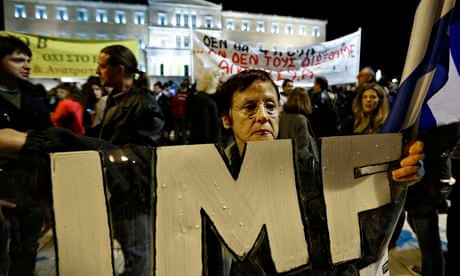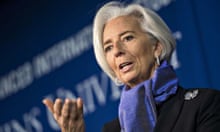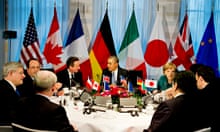A new report published by the European Network on Debt and Development (Eurodad) will make uncomfortable reading for the International Monetary Fund. The report, entitled "Conditionally yours: An analysis of the policy conditions attached to IMF loans", has examined such conditions and concluded that their number is rising and that "they continue to be linked to harsh austerity measures and interfere in sensitive policy areas".
Despite the IMF claiming that it has "learned from previous crises" and has streamlined the demands it attaches to a loan, the report found that structural conditions had, in fact, increased from an average of 14 in 2007 to almost 20 attached to each loan today.
Perhaps even more worryingly, it concluded that these conditions are ever more intrusive on domestic policy and include interference with tax and expenditure; freezing or reducing public sector wages; mandating cuts to welfare programmes, including pensions; restructuring and privatisation of public enterprises; and reducing minimum wage levels. All this could be seen as diametrically opposed to the IMF's stated articles of agreement, which stipulate that its task is to act as lender of last resort and help guide monetary policy while respecting "the domestic social and political policies of members". Eurodad reports that recent conditions imposed on the Ukraine "include a cut in energy subsidies for consumers and a rise in gas prices by 50%".
What we have essentially ended up with is an unelected and entirely unaccountable supranational body, using its position as lender of last resort to make domestic policy via the back door. And, unfortunately, by its own admission, the IMF often gets it wrong. The Centre for Economic and Policy Research warned as far back as 2010 that the IMF's obsession with austerity was "dangerous" and would plunge European countries such as Greece into even deeper recessions. Three years later, the IMF admitted it "got its sums wrong".
Fernando Solanas's documentary Memoria del Saqueo provides chilling details of what happened in Argentina, for example. Having been the busty centrefold of IMF policies throughout the 1990s, by sticking religiously to all IMF advice, privatising everything that could be, liberalising industries, lowering corporation taxes and tightening public spending, Argentina suffered a catastrophic economic collapse in 2001. "In the case of Argentina, we seem to have got the balance wrong," said the IMF.
It is crucial to note what the IMF had to say on the UK economy in 2007, the performance of which it described as impressive: "The financial sector is strong and well supervised with a principle-based approach. The fiscal framework is good, and the mission focused on how to build fiscal cushions needed to respond to adverse shocks. In particular, looking ahead to the framework over future cycles, we noted that debt is likely to rise to just under 40% of GDP over the next few years. This in itself is not a concern, and it still constitutes one of the lowest debt ratios among G7 countries". This was the year before the entire system collapsed, plunging us all into the deepest recession in generations.
Because of the voting system – one of the areas which Eurodad suggests should be radically reformed – large western economies can "gang up" on developing economies, while effectively having a veto on anything which affects them. The US, for instance, holds 17% of voting rights. The IMF was never envisaged as a means of bullying developing economies into market liberalisation, so that ailing western economies could grow.
The IMF is an unelected and unaccountable body with a specific and narrow remit, which does not include gas prices in the Ukraine or VAT rates in Greece. The overreach of its agenda has been crisply described by former vice-president of the World Bank, Joseph Stiglitz: "When the IMF arrives in a country, they are interested in only one thing. How do we make sure the banks and financial institutions are paid?… It is the IMF that keeps the [financial] speculators in business. They're not interested in development, or what helps a country to get out of poverty."
It is also clear from the Eurodad report that the IMF is failing in its mission as lender of last resort. Almost all countries currently in an IMF programme are repeat borrowers. There is an urgent need to distinguish between situations of countries with temporary liquidity problems, for which the IMF should be acting unconditionally as lender of last resort – the reason for which it was set up – and countries with deeper financial problems where such temporary loans result in debt spirals. Jesse Griffiths, co-author of the report and director of Eurodad, recommends an urgent and major overhaul. The IMF needs to "recognise that its current model often makes debt situations far worse", he says.
I suspect that most citizens of any country that has been the recipient of the IMF's intrusively neoliberal beneficence would heartily agree.





